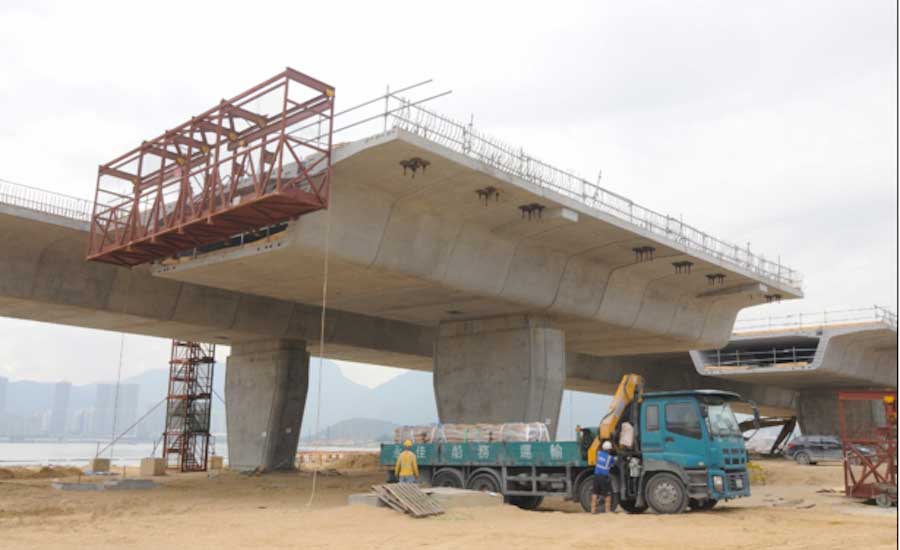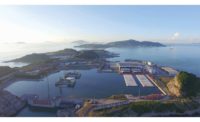Doubts have arisen over the concrete quality on China’s 35.6-km-long Hong Kong-Zhuhai-Macao Bridge Project following arrests of staff of a quality testing contractor.
Hong Kong’s highways department has ordered non-destructive concrete testing of bridge structures and tunnels on that and two linked projects associated with the unnamed firm.
On 23 May officials of Hong Kong’s Independent Commission Against Corruption (ICAC) announced the arrest of two senior executives, two senior site laboratory technicians, 12 site laboratory technicians and five laboratory assistants of a contractor working for the government's Civil Engineering and Development Dept. (CEDD).
 |
| A conceptual image of the 35-km-long bridge project. |
The company had started testing concrete and soils on the projects in January 2013 on behalf of CEDD. Suspicions of malpractice arose in early 2015, according to ICAC.
The contractors’ staff are suspected of falsifying results to cover up irregularities in contractually required test timings. Some laboratory staff might also “have replaced the concrete samples by using a metal calibration cylinder and/or high strength concrete cubes to falsify the tests,” the investigators add.
Two senior staff “might have corruptly connived to submit false reports to the CEDD,” according ICAC. The contractor is also suspected of covering up the malpractice in an internal investigation launched after the irregularities had been spotted.
ICAC clarified that “there is no information or evidence to suggest that any public officers, contractors or material suppliers (or their personnel), other than the CEDD contractor and its staff members, were involved in the above malpractice.”
Work on the crossing began in 2010 and the link is now largely complete, according to Hong Kong-Zhuhai-Macao Bridge Authority. The crossing consists mainly of a viaduct with a 6.7-km-long immersed tube tunnel and artificial islands. Only 6 km of the link lies within Hong Kong territory and the rest is in Guangdong.





